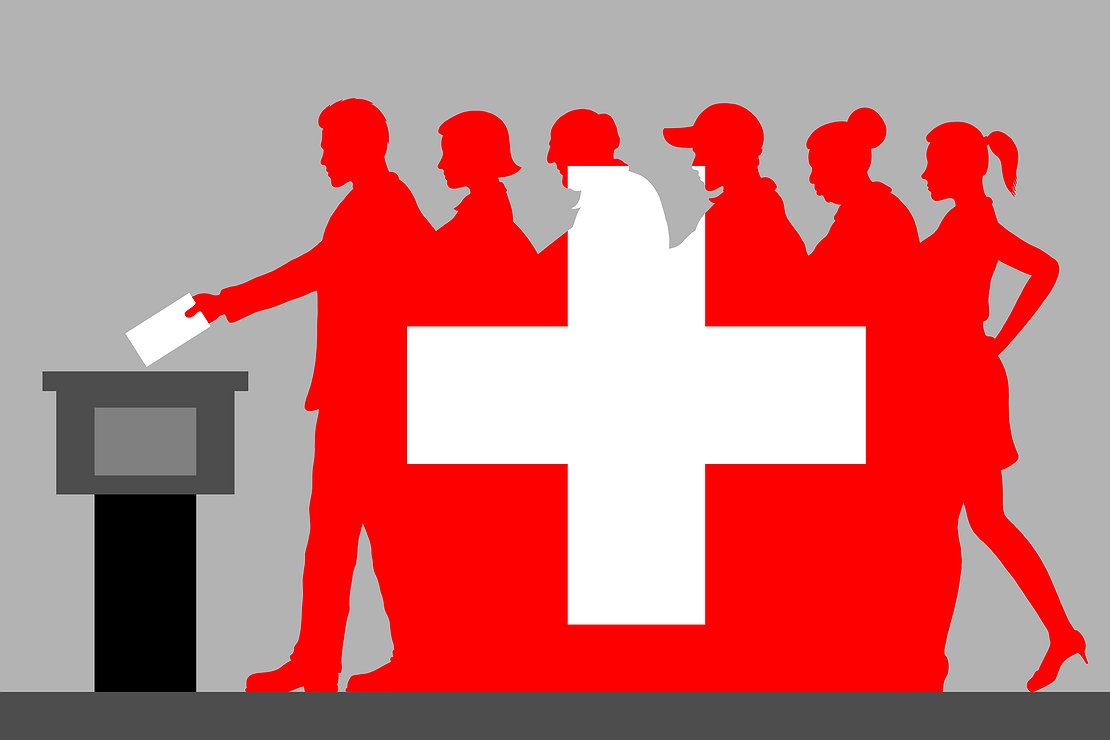
Referendum on ‘self-determination’ in Switzerland:Power for a few, powerlessness for the many
If there is one thing that deserves the inflated designation of ‘strong sign,’ it is – especially in view of the UN compact for migration which is ready to be signed off – what is currently happening in Switzerland and will culminate on November 25th. The vote in the run-up to the so-called ‘self-determination initiative’ (SI). It’s a signal that should be heard throughout Europe because it strikes at the very core of the DNA of our social and economic systems. This may explain why European media do not consider it worthy of coverage.
For it is precisely the small Alpine country that shows more clearly than ever before and elsewhere what kind of regime political, NGO and corporate managers have in mind for the future of Europe's countries. And it is not without irony that it is precisely the thing that is to be abolished that is making it possible to glaringly, and possibly for the last time, highlight their true motives and intentions: direct democracy.
The initiative text in brief: The basis and limit of all government action should be the law. The supreme source of law is the Federal Constitution of the Swiss Confederation. Politicians must therefore not enter into any obligations that contradict the Federal Constitution. Federal laws and international treaties, the approval of which was subject to a referendum, are the yardstick by which the Federal Supreme Court and other legislative authorities must act. All this is subject to the mandatory provisions of general international law (prohibition of war of aggression, prohibition of torture, prohibition of genocide and prohibition of slavery).
Put plainly, this means that if the initiative were adopted, the courts, government and parliament would in future have to go back to implementing the decisions made by Swiss citizens at the ballot box, provided that these decisions did not violate compelling general international law. Period.
The initiative is an emergency brake. It became necessary because six years ago, with the stroke of a pen, five (!) judges of the Federal Supreme Court declared the practice invalid that had been functioning since 1848, and decided that international agreements should be placed above national law immediately and “across the board.” It was a coup from above, which the SI is to correct. Thank goodness for direct democracy.
The opponents of the initiative – co-financed by the network around the democracy framer George Soros (Operation Libero) – now say that it is about nothing less than human rights, plain and simple. They claim that if the initiative were adopted, the rights of the disabled, women and children would be immediately pulverized and – with reference to the ‘Mass Immigration Initiative’ and the ‘ban on minarets’ – there would be the danger of isolation, cultural impasse, totalitarianism and the installation of a kind of Nazi regime (no joke!).
This reasoning is completely wrong, not to mention grotesque. It is the Swiss citizens who have defended their country for 170 years via direct democracy against all forms of totalitarianism. Totalitarianism, let us be clear, which has always originated directly or indirectly from their own government.
So if the majority of Swiss citizens want to terminate or renegotiate a treaty such as that about the free movement of people, which is getting out of hand, then this is not an expression of the will to isolation and totalitarianism, but rather a mandate for Parliament and the Federal Council to be more careful with the available space and to protect the welfare systems they finance from becoming even more overburdened. Nothing other than the task of safeguarding the interests of their citizens.
And if the majority of Swiss citizens decide that the construction of minarets should not be allowed, then this is not an expression of the will to totalitarianism and active racism, but the insight that there is something like a culture on which Switzerland is based, which has provided prosperity and peace in the past centuries and which one would like to preserve by giving it priority over foreign cultures.
So whoever here cries “totalitarianism” and “Nazi regime” actually denies sovereignty, culture and identity of a state and its citizens, and advocates – so one must assume, inversely – a more global identity, a more global culture, a more global state. Which means nothing other than supporting a non-identity, a non-culture and a non-state.
That’s what it’s about – that’s the crux of the matter. Forget human rights – they’re just a pretext. Or do you really believe that if the initiative were adopted, the Swiss would immediately begin to establish a brutal dictatorship that despises humanity, celebrates economic isolation and slashes the roots of their prosperity? No – the core question is quite a different one: Shouldn’t elected international and – this has to be assumed if one believes the opponents of the initiative – godlike infallible institutions, in which the representatives of dictatorial and corrupt regimes also sit, be protected from the citizens of a state, or should the citizens be protected from the arbitrary interventions of such institutions? Should a state remain a sovereign state that deserves this attribute, or should it only be so in name while being degraded to an administrative unit of supranational bodies? Should direct democracy in Switzerland remain the decisive regulator with which the people can rein in the power of the powerful, or should it be shrunk down to a controllable valve, a satisfaction of the people and a show, as any referendum could be annulled by reference to international agreements?
That's what it's all about: power. It's about who has control. It's about whose interests will come first in the future. It's about who will decide in the future how and with whom the Swiss should live and do business. Those who, with their argumentation and with every syllable, slap the citizens around their ears with their distrust and deep, deep contempt for them – or instead the citizens themselves.
A ‘no’ to the initiative means that in the future, agreements like the Global Migration Pact can evolve from non-binding recommendations to binding obligations and finally to applicable law, without direct democratic difficulties and through the back door of international law. And a ‘no’ very probably also means a big step toward and into what James Burnham called the ‘managerial revolution’ in the book of the same name in 1941. The book that inspired George Orwell's ‘1984.’ Power for a few, powerlessness for the many.
Translated from eigentümlich frei, where the original article was published on 31st October 2018.




